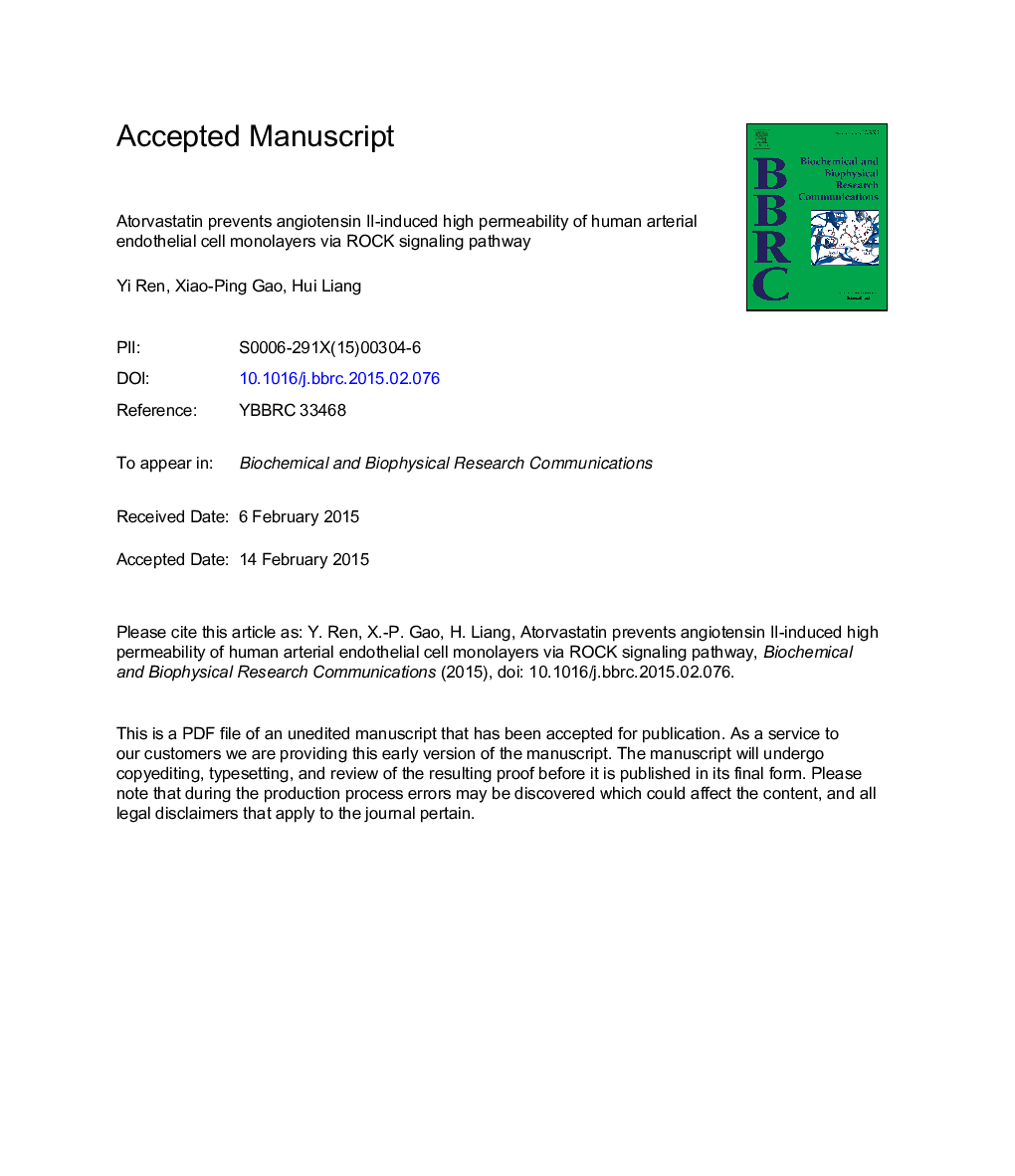| Article ID | Journal | Published Year | Pages | File Type |
|---|---|---|---|---|
| 10752766 | Biochemical and Biophysical Research Communications | 2015 | 17 Pages |
Abstract
Intracranial aneurysm, as a common cause of cerebral hemorrhage, is often discovered when the aneurysm ruptures, causing subarachnoid hemorrhage. Unfortunately, the formation of cerebral aneurysm, which is associated with endothelial damage and macrophage migration, still cannot be prevented now. Tight junctions (TJs) open due to the disappearance of TJ proteins occludin and zona occludens-1 (ZO-1) in damaged endothelia, thus allowing macrophage migration and forming cerebral aneurysm. Therefore, cerebral aneurysm formation can be prevented by increasing TJs of the artery endothelium. Interestingly, statin, which can reduce saccular aneurysm, may prevent aneurysm formation through acting on different steps, but the underlying mechanism remains unclear. In this study, angiotensin II (Ang II) significantly increased the permeability of human arterial endothelial cell (HAEC). Moreover, the distribution of ZO-1 in cell-cell junction area and the total expression in HAECs were significantly decreased by Ang II treatment. However, the abnormal distribution and decreased expression of ZO-1 and hyperpermeability of HAECs were significantly reversed by pretreatment with atorvastatin. Furthermore, Ang II-induced phosphorylations of MYPT1, LIMK and MLC2 were significantly inhibited with atorvastatin or Rho kinase (ROCK) inhibitor (H1152) pretreatment. Knockdown of ROCK-II probably abolished Ang II-induced abnormal ZO-1 distribution and expression deficiency and hyperpermeability of HAECs. In conclusion, atorvastatin prevented Ang II-induced rupture of HAEC monolayers by suppressing the ROCK signaling pathway. Our results may explain, at least in part, some beneficial effects of statins on cardiovascular diseases such as intracranial aneurysm.
Related Topics
Life Sciences
Biochemistry, Genetics and Molecular Biology
Biochemistry
Authors
Ren Yi, Gao Xiao-Ping, Liang Hui,
